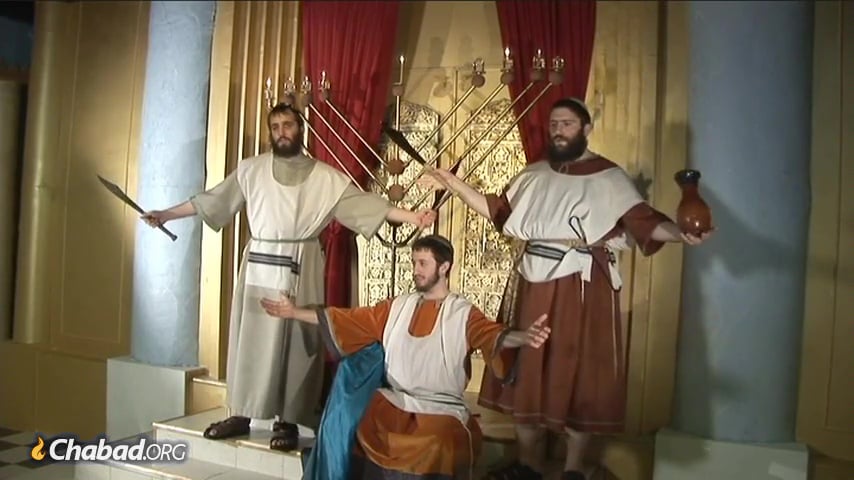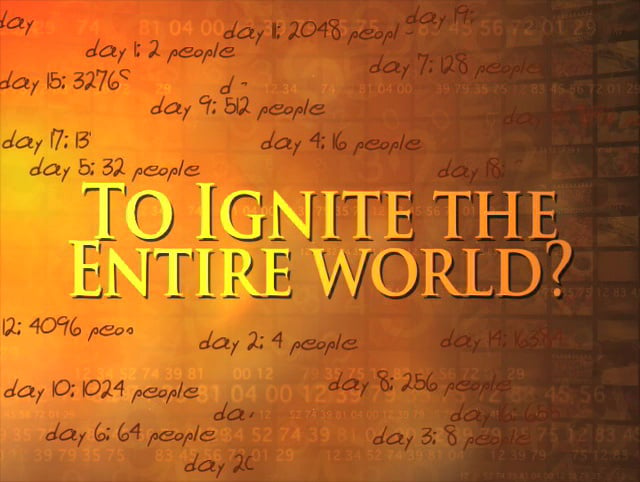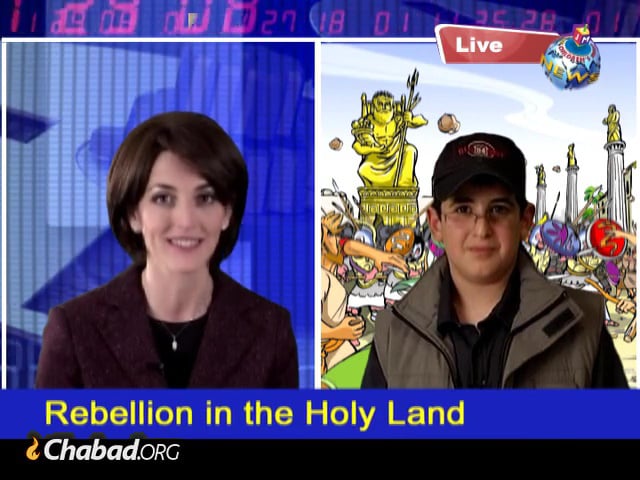ב"ה

Children’s Rally, 25 Kislev, 5741 • December 3, 1980
The Chanukah battle and victory were immortalized by the Sages. The candles evoke the memory of the small group of Jews who fought those who had opposed the Torah.
Today, we each battle our own evil inclination as well. Our victories, as well, will be eternally remembered.
Our current mission and battle is for the coming of Moshiach, as we request three times a day during prayer. Although we only request his coming three times a day, we yearn for him “all day”!

Tuesday, December 16th at 5:30 PM ET
Watch a live broadcast of the lighting ceremony of the 36-foot-high menorah at Grand Army Plaza in Midtown Manhattan. This iconic menorah was designed by world-renowned sculptor Yaacov Agam and has been lit every Chanukah since 1977—a project of the Lubavitch Youth Organization.

Sunday, December 21st at 6:00 PM ET
Join in for a menorah lighting with Chabad of Jamaica and an unforgettable evening where music brings people together for a powerful cause of Hurricane Melissa relief. International recording artist Alex Clare will perform for a night of inspiration, connection, and purpose. The event takes place on the final night of the Hanukkah holiday.

Parshah Curiosities: Vayigash
When the Egyptians spend everything they own in buying food from Joseph, he collects and gives all the money and wealth to Pharaoh. There’s a Midrash stating that Yosef hid three treasures from these riches. Discover intriguing insight and meaning in this otherwise enigmatic homily.

What a fast day is really about.
The fast of the Tenth of Tevet commemorates the Babylonian siege of Jerusalem (588 BCE), which culminated in the destruction of the first Temple. It is always observed in the week before or after the Torah reading of Vayigash, which relates the story of the dramatic encounter between Yehuda and Joseph. This class explores the inner connection between the two, and offers essential, spiritual guidance for achieving personal and collective redemption. (Likutei Sichos, volume 15)

Moshiach has to be a scion of the House of David of the ‘Kingdom of Judah’. But why can he not be a descendent of the ‘Kingdom of Joseph’? Indeed even Judah bowed to Joseph acknowledging his authority? In this class a profound debate in the Talmud is evoked that provides the key to the answer and, more significantly, reveals the unique contribution that our generation must give in bringing about the final redemption. (Based on the Maamar V’Avdi Dovid, Achron shel Pesach 5746)

Children’s Rally, 25 Kislev, 5741 • December 3, 1980
The Chanukah battle and victory were immortalized by the Sages. The candles evoke the memory of the small group of Jews who fought those who had opposed the Torah.
Today, we each battle our own evil inclination as well. Our victories, as well, will be eternally remembered.
Our current mission and battle is for the coming of Moshiach, as we request three times a day during prayer. Although we only request his coming three times a day, we yearn for him “all day”!

7th Night of Chanukah, 5748 · December 21, 1987
When a Jew celebrates Chanukah, he may be confronted: “You Jews are so few compared to
the nations of the world. Yet you hold fast to your customs and commandments, ignoring what
the billions of non-Jews around you think and do… Wherein lies your strength to stand in the
face of such odds?”

Chanukah reminds every Jew that it is G-d’s eternal mandate to carry the torch of His
“Mitzvah-candle and Torah-light.” With most Mitzvos, the “candle” and “light” are not
physically visible. But with the Chanukah candles we see how fulfilling the Mitzvah creates
actual physical light that illuminates all one’s surroundings.

Two Versions of the Timeline of the Maccabee's Victory
Among the early Talmudic commentaries, there are two opinions about the chronology of events commemorated on Chanukah. One says that the war was won on the 24th of Kislev and that the first day of Chanukah, the 25th of Kislev, is the anniversary of the first day of peace. The other says that on one day, the 25th of Kislev, the Maccabees both won the war and rededicated the Temple.
Get the Chabad.org Video app










































































































